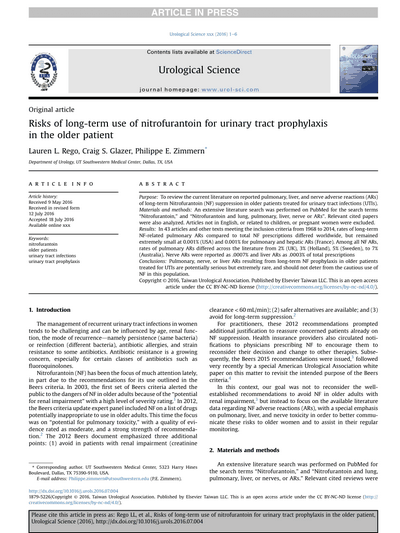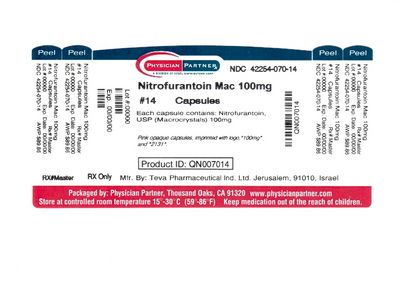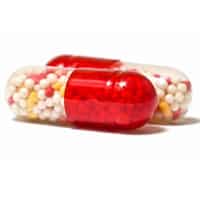Nitrofurantoin is an antibiotic drug primarily used to combat urinary tract and kidney infections caused by E.

coli, Staphylococcus aureus, or Streptococcus pyogenes strains that are susceptible to this antibiotic. The FDA approved Nitrofurantoin in 1985. Nitrofurantoin is available as both a single-unit tablet and an extended-release tablet. Nitrofurantoin Side Effects can be serious and cause long-term side effects like:
Urinary tract infection – Symptoms of urinary tract infection include pain in the urethra (a tube that leads from the bladder to the outside of the body) or at the lower right abdomen and pelvic area, burning, and a gray or white urine. These symptoms can occur suddenly or over several days. In rare cases, men may also experience nausea and vomiting while urinating.
Staphylococcus aureus and streptococcus pyogenes infections – Symptoms of staphylococcus aureus and streptococcus pyogenes infections include itching, redness, soreness, and swelling of the skin around the genital region, fever, chills, and vomiting or abdominal cramps.

If untreated, these infections can lead to serious complications such as:
Other complications include stomach irritation, nausea, vomiting, and intestinal bleeding, kidney damage, and skin rash. If you experience any of these side effects, it is important that you see your doctor immediately.
Many of the side effects of Nitrofurantoin are not caused by the drug itself, but by long-term oral antibiotic use. Long term treatment with antibiotics weakens the immune system and reduces the effectiveness of other drugs that may help fight the infection. It can also make the immune system less tolerant of the antibiotic that the body produces on its own. This means that once your body becomes resistant to the antibiotic, it will take longer to build a strong response to it.
Nitrofurantoin may also increase the amount of white blood cells produced by the white blood cells. This means that even if you have a strong body’s natural immunity to the infection, you could get infected with a different type of bacteria from the one you have been fighting with the antibiotics.
Nitrofurantoin Side Effects can also happen with other drugs or medicines that you may be taking at the same time. For instance, antibiotics, steroids, diuretics, and antihistamines may increase the risk of infection, while corticosteroids or anti-inflammatory drugs, such as aspirin, may increase the risk of infection.

Some people also react to the antibiotic differently to each other and this can cause severe irritation of the urinary tract or kidney.
Long-term use of antibiotics can also weaken the bones, muscles, and immune system. It may increase your risk of heart attack or stroke. There have also been studies that show that the antibiotic does not kill the bacteria the way prescription antibiotics do, making your immune system less effective. So, by taking this antibiotic you may be doing yourself some damage.
Kidney disease is another side effect of the drug. Nitrofurantoin can damage the kidneys and reduce the amount of blood flowing to them. It can also increase the risk of bone fractures and increase the risk of kidney failure. Taking this medication can lead to more problems in the future and you should talk to your doctor before starting this or any antibiotic for any conditions.
Although some side effects of this antibiotic are temporary, others are permanent.

For example, prolonged use of the antibiotic can slow the rate at which your body is able to eliminate toxins. In the meantime, your body is absorbing the antibiotics through the skin. So, your body is fighting an infection as you absorb them.
Because your body is fighting off the infection, you may also notice that your skin becomes dry, red, itchy, and is generally feeling a lot weaker than it normally would. You might also notice that you feel weaker physically. You might find that you become sick more often.
Long-term use of this antibiotic can cause damage to your liver, bones, and muscles and even increase your risk of kidney damage. When you do this, you should consult with your doctor right away. They can give you the proper treatment that is best for your particular case.